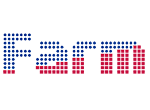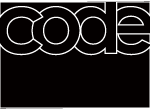Inter-university Exchange Project
What is the "Inter-university Exchange Project"?
The "Inter-university Exchange Project" is a funding project launched by MEXT in 2011 to aims to foster people capable of being globally active, and to assure the quality of mechanisms for the mutual recognition of higher education by giving financial support to efforts for the formation of collaborative programs with universities in Asia, the U.S., and Europe, that conduct study abroad programs for Japanese students and undertakes the strategic acceptance of foreign students.
Selected projects
-
 The U.S. COIL Japan U.S. Unique Program
The U.S. COIL Japan U.S. Unique Program -
 Russia Future Agriculture with Russian Far east Pre-Master to Ph.D. Program
Russia Future Agriculture with Russian Far east Pre-Master to Ph.D. Program -
 China, South Korea Campus Asia Plant Environment Innovation Program
China, South Korea Campus Asia Plant Environment Innovation Program -
 Mexico, Panama Post Urban Living Innovation Program
Mexico, Panama Post Urban Living Innovation Program -
 ASEAN countries Twin College Envoys Program
ASEAN countries Twin College Envoys Program -
 Europe, the U.S. Continents Design Education Program
Europe, the U.S. Continents Design Education Program
COIL-JUSU (FY2018-FY2022, the U.S.)

COIL Japan U.S. Unique Program
In the COIL JUSU program, Collaborative Online International Learning (COIL) will be used between Chiba University and four universities in the U.S.
Classes with unique characteristics of Chiba University, such as Disaster nursing, Plant factory and Japanese classical performing arts, will be carried out in the U.S. through COIL. Also, distinctive classes of four universities in the U.S., such as Social Education, Cosmetics Science, Business Design and Entertainment, will be conducted at Chiba University using COIL. In addition to COIL classes, students will be able to take part in social learning, such as volunteering, internship and professional study, to gain actual experiences.
FARM (FY2017-FY2021, Russia)

Future Agriculture with Russian Far east Pre-Master to Ph.D. Program
The aim of this program is to train professionals who can contribute to the management of the next-generation's agricultural businesses such as plant factories with artificial light and solar light. Japan and Russia collaborate to nurture specialists who attain knowledge and skills for the development of future agricultural businesses, which range from food distribution, sales and consumption, as well as production processes.
CAPE (FY2016-FY2020, China, South Korea)

Campus Asia Plant Environment Innovation Program
CAPE is a program to evolve plant-environment innovation by applying advanced technology to plant environment fields . This program aims to develop students possessing skills in both horticulture (agriculture) and engineering. This program will be conducted with three universities in China and South Korea. Students will learn various fields ranging from agriculture, IoT and AI, as well as Social science fields such as Food distribution economy, Landscape and Urban Policy.
PULI (FY2015-FY2019, Mexico, Panama)

Post Urban Living Innovation Program
The purpose of the Post Urban Living Innovation Program (PULI) is to create comfortable cities of the future together with students from Mexico and Panama. It is Chiba University's first university-wide program under the Inter-University Exchange Program. PULI student groups affiliated with humanities and science courses work together and advance their development of problem solving abilities by using the same processes used in businesses.
TWINCLE (FY2012-FY2016, ASEAN countries)

Twin College Envoys Program
Through the TWINCLE program, students of the Graduate School of Education (or Faculty of Education) and students from other graduate schools form pairs, and visit ASEAN countries. Students participate in classes at local elementary, junior high and high schools, and gain actual experience in teaching courses on advanced scientific research and Japanese culture. The program develops globally-minded people (teachers and researchers).
CODE (FY2011-FY2015, Europe, the U.S.)

Continents Design Education Program
Continents Design Education Program (CODE) develops globally-oriented designers who will contribute to future industries based on service design and contents design education that reflects the special characteristics of two countries and one continent: the U.S., Europe and Japan.





